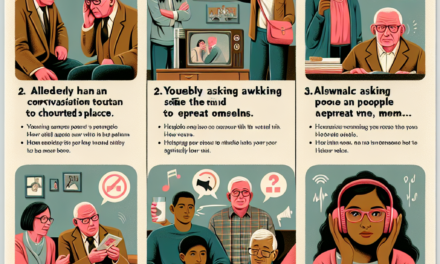Unlocking Lucrative Healthcare Careers Without a Medical Degree
The healthcare industry is one of the fastest-growing sectors globally, offering a plethora of career opportunities that do not necessarily require a medical degree. As the demand for healthcare services continues to rise, so does the need for skilled professionals in various roles that support patient care, administration, and technology. This article explores five lucrative healthcare careers that can be pursued without a medical degree, providing insights into the qualifications needed, potential earnings, and the future outlook for each role.
1. Healthcare Administration
Healthcare administration is a vital component of the healthcare system, focusing on the management and organization of healthcare facilities. Professionals in this field ensure that healthcare services run efficiently and effectively, making it a rewarding career path for those interested in the business side of healthcare.
Roles and Responsibilities
Healthcare administrators oversee various aspects of healthcare facilities, including:
- Managing budgets and financial operations
- Ensuring compliance with healthcare regulations
- Coordinating staff and resources
- Implementing policies and procedures
- Improving patient care quality and safety
Educational Requirements
While a medical degree is not required, a bachelor’s degree in healthcare administration, business administration, or a related field is typically necessary. Many professionals also pursue a Master of Health Administration (MHA) or a Master of Business Administration (MBA) with a focus on healthcare to enhance their qualifications.
Salary Expectations
The salary for healthcare administrators can vary widely based on experience, location, and the size of the facility. According to the U.S. Bureau of Labor Statistics (BLS), the median annual wage for medical and health services managers was approximately $104,280 in 2020, with the potential for higher earnings in larger facilities or specialized areas.
Job Outlook
The job outlook for healthcare administration is promising, with the BLS projecting a growth rate of 32% from 2019 to 2029, much faster than the average for all occupations. This growth is driven by an aging population and an increased emphasis on healthcare services.
Case Study: Successful Healthcare Administrator
Consider the case of Sarah, who transitioned from a role in retail management to healthcare administration. After obtaining her bachelor’s degree in healthcare administration, she started as an administrative assistant in a local hospital. Through hard work and dedication, she advanced to a managerial position within five years, overseeing a team of 20 staff members and managing a budget of over $2 million. Sarah’s story exemplifies how individuals can successfully navigate the healthcare administration field without a medical degree.
2. Health Information Technology
Health Information Technology (HIT) is an essential field that combines healthcare and technology to improve patient care and streamline operations. As healthcare facilities increasingly rely on electronic health records (EHRs) and other digital tools, the demand for HIT professionals continues to grow.
Roles and Responsibilities
HIT professionals are responsible for:
- Managing patient data and electronic health records
- Ensuring data security and compliance with regulations like HIPAA
- Implementing and maintaining health information systems
- Training staff on new technologies
- Analyzing data to improve patient outcomes
Educational Requirements
A degree in health information management, health informatics, or a related field is typically required. Many professionals also obtain certifications such as Registered Health Information Administrator (RHIA) or Certified Health Data Analyst (CHDA) to enhance their credentials.
Salary Expectations
The median annual wage for health information technicians was around $44,090 in 2020, according to the BLS. However, those in managerial or specialized roles can earn significantly more, with salaries exceeding $100,000 for experienced professionals.
Job Outlook
The job outlook for HIT professionals is robust, with the BLS projecting a growth rate of 8% from 2019 to 2029. This growth is fueled by the ongoing digitization of healthcare records and the need for data management and analysis.
Case Study: A Day in the Life of an HIT Professional
John, a health information technician, works at a large hospital where he manages the electronic health records system. His day involves ensuring that patient data is accurately entered and maintained, training new staff on the system, and conducting audits to ensure compliance with regulations. John’s role is crucial in ensuring that healthcare providers have access to accurate and timely patient information, ultimately improving patient care.
3. Medical Coding and Billing
Medical coding and billing is a critical function in the healthcare industry, ensuring that healthcare providers are reimbursed for their services. This field requires attention to detail and a strong understanding of medical terminology, making it an excellent option for those looking to enter healthcare without a medical degree.
Roles and Responsibilities
Medical coders and billers are responsible for:
- Translating medical procedures and diagnoses into standardized codes
- Submitting claims to insurance companies
- Ensuring compliance with regulations and guidelines
- Managing patient billing inquiries
- Maintaining accurate records of services provided
Educational Requirements
A high school diploma is typically the minimum requirement, but many employers prefer candidates with postsecondary education in medical coding or billing. Certification from organizations such as the American Academy of Professional Coders (AAPC) or the American Health Information Management Association (AHIMA) can enhance job prospects.
Salary Expectations
The median annual wage for medical records and health information technicians, which includes coders and billers, was approximately $44,090 in 2020. Experienced coders, especially those with specialized certifications, can earn significantly more.
Job Outlook
The job outlook for medical coding and billing professionals is favorable, with the BLS projecting a growth rate of 8% from 2019 to 2029. The increasing complexity of healthcare billing and coding processes contributes to this demand.
Case Study: Transitioning to Medical Coding
Maria, a former administrative assistant, decided to pursue a career in medical coding after taking an online certification course. Within six months, she secured a position at a local clinic. Maria’s attention to detail and commitment to learning the intricacies of coding allowed her to advance quickly, and she now works as a coding supervisor, overseeing a team of coders and ensuring compliance with billing regulations.
4. Healthcare Quality Improvement
Healthcare quality improvement (QI) professionals focus on enhancing the quality of care provided to patients. This field is essential for ensuring that healthcare facilities meet regulatory standards and continuously improve their services.
Roles and Responsibilities
Healthcare QI professionals are responsible for:
- Analyzing data to identify areas for improvement
- Developing and implementing quality improvement initiatives
- Conducting audits and assessments
- Training staff on quality improvement practices
- Collaborating with various departments to enhance patient care
Educational Requirements
A bachelor’s degree in healthcare administration, public health, or a related field is typically required. Many professionals also pursue certifications such as Certified Professional in Healthcare Quality (CPHQ) to enhance their qualifications.
Salary Expectations
The salary for healthcare quality improvement professionals can vary widely based on experience and location. The median annual wage for healthcare quality managers was approximately $100,000 in 2020, with potential for higher earnings in larger organizations.
Job Outlook
The job outlook for healthcare quality improvement professionals is strong, with a projected growth rate of 20% from 2019 to 2029. This growth is driven by the increasing emphasis on patient safety and quality care in healthcare settings.
Case Study: Impact of Quality Improvement Initiatives
Emily, a healthcare quality improvement specialist, works at a community hospital where she leads initiatives to reduce patient readmission rates. By analyzing data and implementing targeted interventions, Emily’s team successfully reduced readmissions by 15% over two years. Her work not only improved patient outcomes but also saved the hospital significant costs associated with readmissions.
5. Telehealth Coordination
Telehealth has emerged as a vital component of modern healthcare, especially in light of the COVID-19 pandemic. Telehealth coordinators play a crucial role in facilitating remote patient care, making this a promising career path for those without a medical degree.
Roles and Responsibilities
Telehealth coordinators are responsible for:
- Scheduling telehealth appointments
- Ensuring that technology is functioning properly for virtual visits
- Educating patients on how to use telehealth platforms
- Collecting and managing patient data
- Collaborating with healthcare providers to improve telehealth services
Educational Requirements
A high school diploma is typically required, but many employers prefer candidates with postsecondary education in healthcare administration or a related field. Familiarity with telehealth technology and patient management systems is also beneficial.
Salary Expectations
The salary for telehealth coordinators can vary based on experience and location. The median annual wage for similar roles in healthcare administration was approximately $104,280 in 2020, with potential for higher earnings in specialized telehealth positions.
Job Outlook
The job outlook for telehealth coordinators is promising, with the demand for telehealth services expected to continue growing. The BLS does not have specific projections for telehealth coordinators, but the overall growth in healthcare administration roles suggests a positive trend.
Case Study: The Rise of Telehealth Coordination
David, a telehealth coordinator at a large healthcare system, has seen firsthand the rapid growth of telehealth services. Initially hired to manage scheduling and patient inquiries, David quickly adapted to the evolving landscape of virtual care. His role expanded to include training staff on telehealth technology and developing protocols for remote patient monitoring. David’s contributions have been instrumental in ensuring that patients receive timely care, regardless of their location.
Conclusion
The healthcare industry offers numerous lucrative career opportunities that do not require a medical degree. From healthcare administration to telehealth coordination, these roles are essential for supporting patient care and improving healthcare delivery. As the demand for healthcare services continues to grow, so does the need for skilled professionals in various non-clinical roles.
By pursuing education and training in these fields, individuals can unlock rewarding careers that contribute to the overall health and well-being of communities. Whether you are looking to transition from another industry or start your career in healthcare, there are ample opportunities to explore. The key is to identify your interests, seek relevant education and certifications, and stay informed about industry trends to position yourself for success in this dynamic field.





